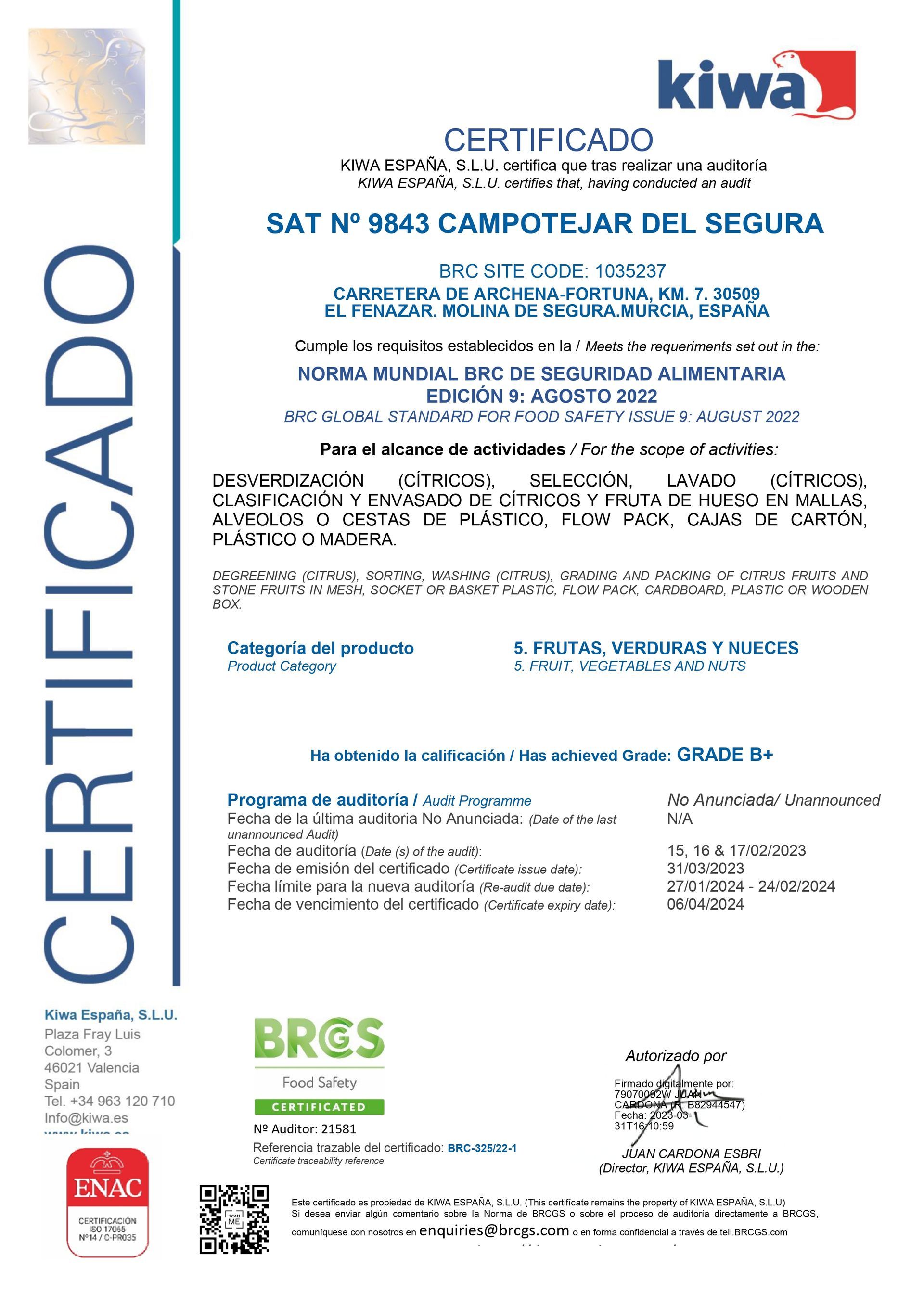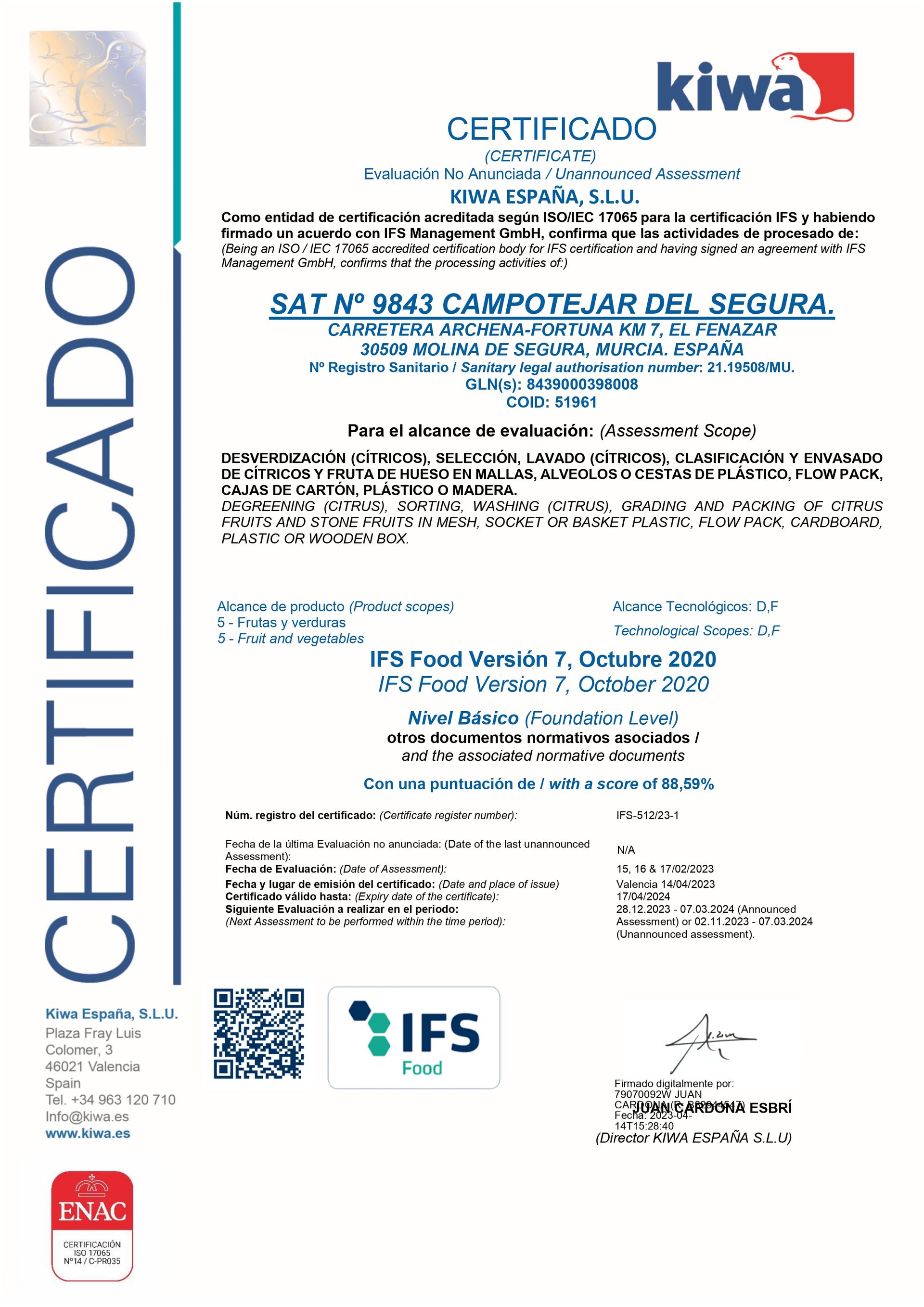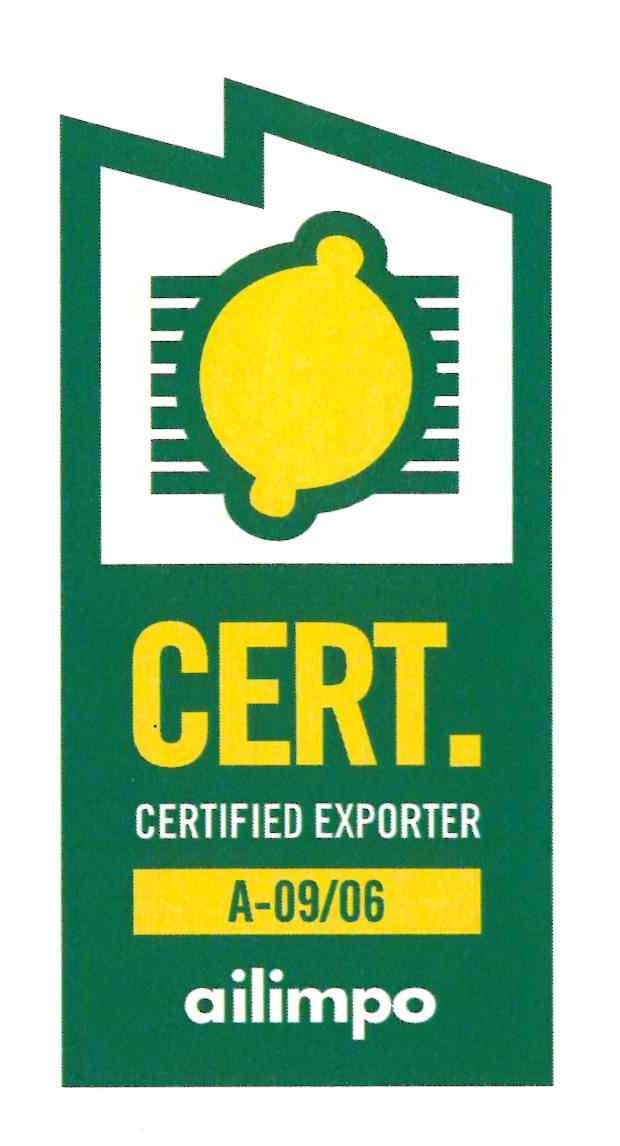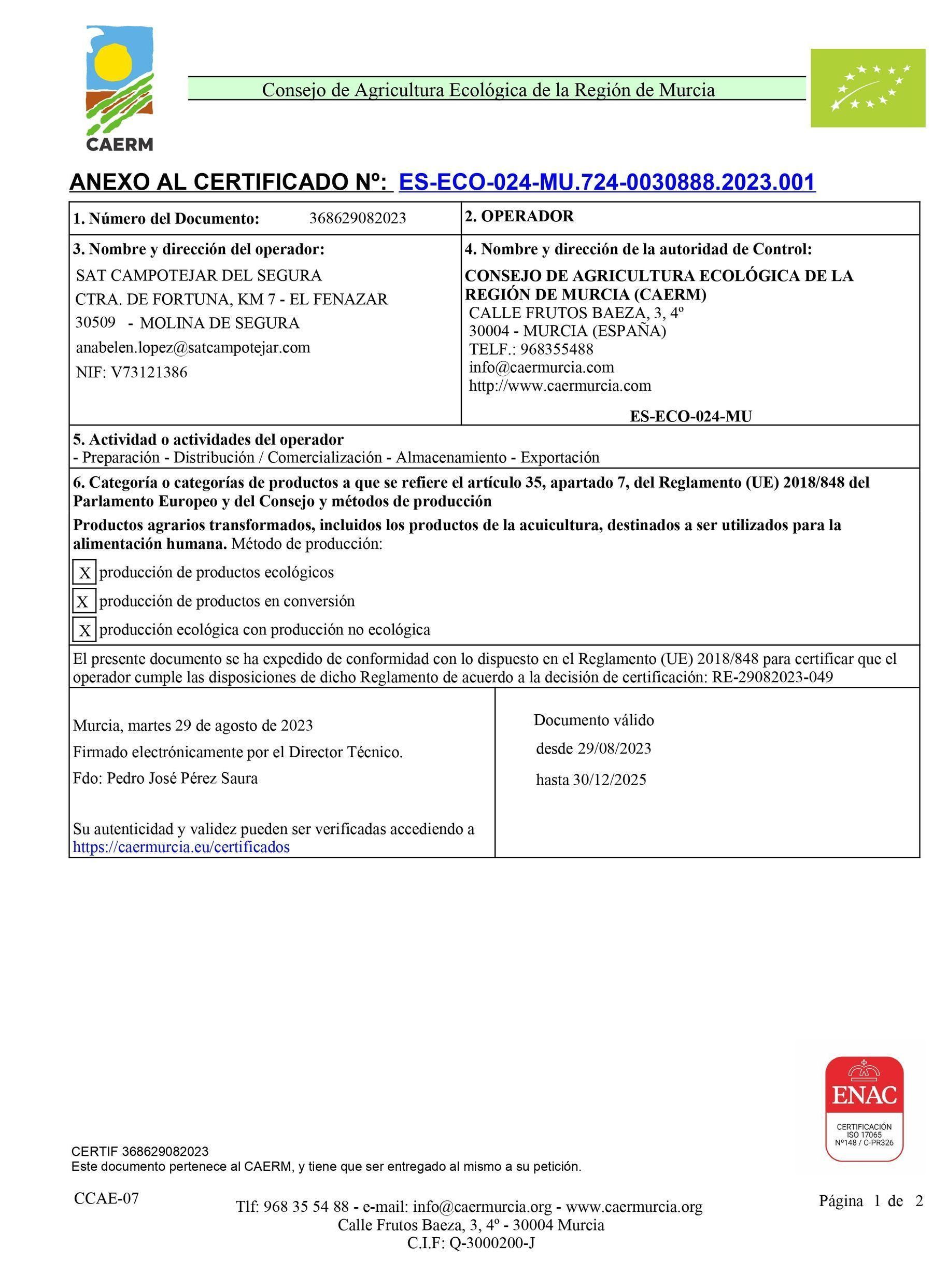Quality

BRC CERTIFICATION
This involves BRC Protocol Certification and the implementation of the following points: 1. Identify potential hazards, assessing their severity and probability of occurrence in each phase of the process, and determining preventive measures for their control. 2. Identify critical control points in the process using a decision-making diagram. 3. Establish the critical limit that ensures that a Critical Control Point (CCP) is under control. 4. Establish a monitoring system to ensure control. 5. Establish corrective actions to be taken when monitoring indicates that a CCP is not under control. 6. Establish a documentation system for all procedures and records appropriate for these principles and their application. 7. Establish verification procedures to confirm that the system is operating effectively.

IFS CERTIFICATION
This is a private technical protocol developed by German, French, and Italian distributors to help suppliers deliver safe products that comply with specifications and current legislation. This protocol requires the prior implementation of a quality management system, a HACCP system based on the Codex Alimentarius, as well as the implementation and management of prerequisites and facilities. It includes all supplier requirements and complies with international requirements (GFSI), providing a clear view of food safety and quality control through supplier assessments, which offer a comprehensive overview of their activities. Objectives: To guarantee the legality, safety, and quality of manufactured products. To establish a common standard with a common assessment system. To ensure the supply of safe products that comply with specifications and legislation, achieving cost reduction and transparency throughout the supply chain. To reduce costs and time for manufacturers and distributors. Ensure transparency and rigor in certification systems. Benefits: Facilitates compliance with applicable legislation. Reduces the costs of potential errors in any production chain. Provides organized communication with all stakeholders. Instills confidence in consumers. Improves documentation. More efficient and dynamic control of food safety risks. Incorporates prerequisite programs into the organization's management system. Saves time and costs by conducting audits in conjunction with other food safety schemes (BRC, Global GAP). Reconciles food safety and quality control.
GLOBALGAP AND GRASP CERTIFICATION
GLOBALGAP's Integrated Farm Assurance regulations are farm-level regulations that cover the entire production process of certified products, from the moment the plant is in the ground (origin and seed control points) or from the moment the animal is incorporated into the production process, to the final unprocessed product. The objective of certification is to verify good practices throughout the production chain. GLOBALGAP is a set of regulatory documents, consisting of the General Regulations, GLOBALGAP Control Points and Compliance Criteria, and the Globalcap Checklist. The document is divided into five parts: a) Part I: General Information. b) Part II: Rules for Certification Bodies. c) Part III: Producer Group Certification. d) Part IV: Comparative Analysis of Approval. e) Part V: Training Rules. GRASP is a voluntary module developed to assess social practices on farms, addressing specific issues related to worker health, safety, and well-being. It is designed to complement GLOBALG.AP certification through its social aspects.

QUALITY LABEL AND CERTIFICATION FOR SPANISH EXPORTERS
This certification is necessary to ensure the highest level of quality in the Spanish lemon market and to offer a list of lemon exporters who offer the highest guarantees and reliability. We certify the procurement, reception, washing, grading, packaging, and shipping of Spanish lemons. This is a voluntary protocol designed by the sector itself to achieve self-regulation within the industry with the utmost rigor and standards. Our certificate number is A-09/06.

Certificate of Compliance with the Organic Farming Control System
At the end of 2015, we obtained the certification of conformity for organic farming according to the indications protected in Regulation (EC) 834/2007, with the operator number MU-3686/E for the products: • Apricot • Table grape • Pepper • Aubergine • Broccoli • Lime • Lemon • Mandarin • Orange • Grapefruit




